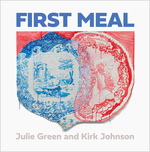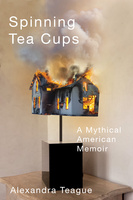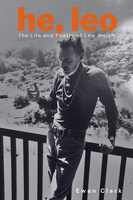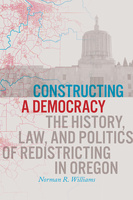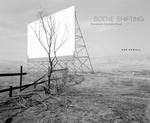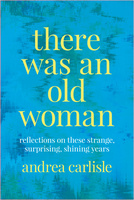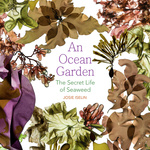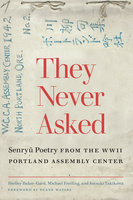First Meal
Wrongful convictions haunt the American criminal justice system, as revealed in recent years by DNA and other investigative tools. And every wrongfully convicted person who walks free, exonerated after years or decades, carries part of that story. From those facts, artist Julie Green posed a seemingly simple question: When you have been denied all choice, what do you choose to eat on the first day of freedom?
In the small details of life at such pivotal moments, a vast new landscape of the world can emerge, and that is the core concept of First Meal. Partnering with the Center on Wrongful Convictions at Northwestern University’s Pritzker School of Law, Green and her coauthor, award-winning journalist Kirk Johnson, have created a unique melding of art and narration in the portraits and stories of twenty-five people on the day of their release.
Food and punishment have long been intertwined. The tradition of offering a condemned person a final meal before execution, for example, has been explored by psychologists, filmmakers, and others—including Green herself in an earlier series of criminal-justice themed paintings, The Last Supper. First Meal takes on that issue from the other side: food as a symbol of autonomy in a life restored. Set against the backdrop of a flawed American legal system, First Meal describes beauty, pain, hope and redemption, all anchored around the idea—explored by writers from Marcel Proust to Michael Pollan—that food touches us deeply in memory and emotion.
In Green’s art, state birds and surreal lobsters soar over places where wrongful convictions unfolded, mistaken witnesses shout their errors, glow-in-the-dark skylines evoke homecoming. Johnson’s essays take us inside those moments—from the courtrooms where things went wrong to the pathways of faith and resilience that kept people sane through their years of injustice. First Meal seeks to inform and spread awareness, but also celebrate the humanity that unites us, and the idea that gratitude and euphoria—even as it mixes with grief and the awareness of loss—can emerge in places we least expect.
Spinning Tea Cups
A Mythical American Memoir
In these quirky and richly told tales, Alexandra Teague brings readers along for the wild ride of her youth, traversing wide swaths of the American landscape in the company of a talking puppet, Victorian ghosts, and a family fueled by fantasy, dysfunction, and fierce love.
Why did people who shunned the culture of consumerism and prided themselves on making everything from scratch take annual trips to Disney World, the mecca of mass-manufactured fun? Did her mother really have psychic abilities? Why did her sensitive youngest nephew speak in a voice that wasn’t his own? How do family legacies of grief and dysfunction and creativity intersect? How can she escape her circumstances without replicating the escapist fantasies with which she was raised?
Teague attempts to understand and contextualize her family in terms of trauma and mental health, but also with deep love and humor. Carefully attuned to the vagaries of geographical cultures, she weaves her family’s history with explorations of pop culture and the specific cultures of the places she and her family pass through: a Texas city, an Arkansas Victorian tourist town, a Southwest ghost town, Central Florida, the Bay Area, Kansas City, and Moscow, Idaho—a college town in the Inland Northwest.
Spinning Tea Cups will appeal to readers interested in American cultural studies, those concerned with the ongoing crisis of mental illness in this country, and anyone seeking to explore the dangerous and recuperative powers of fantasy.
He, Leo
The Life and Poetry of Lew Welch
Largely remembered for his mysterious disappearance in May 1971, Lew Welch was an important voice of the Beat Generation and San Francisco Renaissance. He spoke of key issues that America was facing in the aftermath of World War II—from the rise of consumerism and complacent suburban sensibilities to the threat of environmental disaster. He championed American speech, idioms, and identities. He found inspiration in the words of Gertrude Stein and William Carlos Williams, in the philosophies of Senzaki and the Buddha, and in his myriad friendships with some of the most renowned and revered poets, musicians, and artists of the 1950s and 1960s. His search for authenticity in language and poetry was a small part of a far greater search to establish a clear sense of himself.
He, Leo investigates Welch’s life and work in a chronological fashion, structured around Welch’s own notion of how three main aspects of his life—The Man, The Mountain, and The City—were interdependent. From his birth until his disappearance and presumed death, Welch’s life was often defined by problems, including a complex relationship with his mother, a long struggle with alcohol, and a fluctuating mental state. He was open and candid about everything, a fact that is evident in all aspects of his work.
Each of the three main sections of He, Leo includes key poems, essays, and events—both personal and cultural—to help establish Welch’s importance as a prominent poet and figure during the San Francisco Renaissance. Despite his crushing self-criticism and his reputation as a “friend of,” he was a bona fide poet with a strong voice and message of his own. With this first full-length biography, Ewan Clark restores Lew Welch to his rightful place as an important member of a significant American literary and cultural movement.
Constructing a Democracy
The History, Law, and Politics of Redistricting in Oregon
Every ten years, states go through the process of redistricting: choosing how to divide up and apportion their state and federal legislative districts. How the districts are drawn can determine which party wins the district and therefore controls the legislature or Congress. Although the process may be different in every state, the questions are the same: Who draws the maps? Who can prevent gerrymandering? What power do legislatures, governors, courts, and political parties have to influence the process and the outcomes?
In Constructing a Democracy, legal scholar Norman Williams presents a comprehensive history of legislative and congressional redistricting in Oregon. Because redistricting impacts the representativeness of the ensuing legislative body, Oregon’s constitutional framers, legislators, and courts alike have understandably focused on developing legal rules to constrain the redistricting process. Williams is primarily interested in identifying and understanding the scope of those rules: What legal constraints have existed over time? How aggressively have the courts enforced those restraints? How have political actors undertaken the redistricting task in light of the various rules and the judicial pronouncements regarding those constraints?
The redistricting process in Oregon has not drawn national attention the way it has in states like North Carolina and Pennsylvania. But the process in Oregon is notable in several ways, including an early attention to malapportionment, the use of the initiative to reform the process, and the impact of women leaders on the redistricting process. The Oregon process, however, has also notably lagged behind other states, particularly in considering issues of race and minority representation and preventing gerrymandering.
Scene Shifting
Photographs from Left of Iowa
In an introductory essay to Scene Shifting, Dan Powell speaks of his father’s influence on him in his youth. He describes growing up in the 1950s and 60s in the Roza District, a spacious agricultural valley that was etched out of the sage desert in South Central Washington. He also traces the impact that the nearby Hanford Atomic Works had on his family and the region. At an early age Powell’s concept of the American West was shaped by all three of these factors. The 101 black and white duotone images featured in this compelling volume are mostly from large format negatives (8x10 and 4x5). They highlight a particular period in Powell’s art practice, the 1980s and 90s, when he photographed in the high desert country of Oregon and Washington, as well as in Nevada, California, Arizona, Idaho, and Utah. Several images from the Midwest mark his graduate school experience and first teaching position, before he migrated back to the West to teach photography at the University of Oregon. In photographing the West, Powell was interested in the land as a dynamic theater, the constant shifting of events that moved through his view, on and off road. Points of intersection, the clashing of events where humans interface with the land, occur often within this fabric of beauty and wildness. Powell’s view of the West is broad and diverse, from the visual harmony found in the vastness of space and light, to ironic tensions found through chance and close observation. On one level, Powell was simply measuring his vision of the land against the memories of his childhood. In the second essay, “The Geography of a Life,” esteemed curator, historian, and author Keith F. Davis sheds light on the nature and particular qualities of the work, and on how it is deeply embedded in Powell’s lifelong experience with the West.
Sap in Their Veins
Portraits of Loggers and the Trees They Fell
In 1972 David Paul Bayles left the suburbs of Los Angeles for a summer job as a logger. Then, instead of heading off to photography school in the fall as planned, he stayed. Four years later, celebrating the end of his last day of logging with his crewmates over a few beers, the woods boss toasted him: “We wish you well in photo school and please don’t forget us dirty old loggers.”
Bayles didn’t. A decade later he returned to the forests of the northern Sierras, Mount Shasta, and Redwood coast regions to create a photo exhibition that traveled through California and Oregon. In 2004 he expanded the project, focusing on how northern California’s logging industry had changed and altered the lives and culture of the men with whom he’d spent long days working in forests, men who worked with their hands and intuition. He discovered that with the increased industrialization of the forest and the arrival of machine-oriented tree felling, work that had relied on experience in meeting challenges, on camaraderie and trust, was in danger of becoming more like a robotically-operated assembly line. As one logger told Bayles, “They’re taking the Paul Bunyan out of logging.”
There’s a poignancy to these portraits and the stories they tell of changing times, hard times, and the humor found in between the dire risks loggers encounter every day. Bayles’ photographs and oral histories introduce us to men who love the forests in which they’ve spent, and sometimes risked, or lost, their lives. Many lament the unnecessary loss of trees and the advent of practices favoring quick profits over safety and sustainability. Bayles’ work is a testament and tribute to a fast-disappearing chapter of American woodsmen, one that may soon be forgotten.
There Was an Old Woman
Reflections on These Strange, Surprising, Shining Years
Andrea Carlisle isn’t struggling with her new identity as the Old Woman in the ways society seems to think she should. In fact, she is finding her later years to be an extraordinary and interesting time. In trying to understand the discrepancy, she interrogates the sources of negativity in literature, art, and received wisdom that often lead women to dread this transformative time of life. Given the cultural pervasiveness of ill will toward older women, it is small wonder that growing older is not seen as a natural, even desirable, process. Although some elements of aging are hard to reckon with, there is much to make use of and delight in, along with mysteries, surprises, and revelations.
In these personal essays, Carlisle looks for new ways to bring herself more fully to this time of life, such as daily walks with other women and connecting to the natural world that surrounds her houseboat on an Oregon river at the foot of a forest. She writes about experiences shared with many, if not most, older women: wondering at her body’s transformation, discovering new talents, caregiving, facing loss, tuning in to life patterns and drawing strength through understanding them, letting go (or not) of pieces of the past, and facing other changes large and small.
Those curious about, approaching, or living in old age will find wisdom and insight in her unique perspective. In a voice that rings with clarity, humor, and humility, Carlisle shows us that old age is not another country where we can expect to find the Old Woman grimly waiting, but is instead an expansion of the borders in the country we’re most familiar with: ourselves.
An Ocean Garden
The Secret Life of Seaweed
In this captivating book, artist and avid beachcomber Josie Iselin reveals the unexpected beauty of seaweed. Produced on a flatbed scanner, Iselin’s vibrant portraits of ocean flora reveal the exquisite color and extraordinary forms of more than two hundred specimens gathered from tidal pools along the California and Maine coasts. Her engaging text, which accompanies the images, blends personal observation and philosophical musings with scientific fact. Now available in paperback for the first time, this edition includes a new foreword and updated nomenclature. An Ocean Garden is a poetic and compelling tribute to the natural world and the wonder it evokes.
Hydraulic Societies
Water, Power, and Control in East and Central Asian History
Hydraulic Societies explores the linked themes of water, power, state-building, and hydraulic control. Bringing together a range of ecological, geographical, chronological, and methodological perspectives, the essays in this book address how humans have long harnessed water and sought to contain its destructive power for political, economic, and social ends. Water defines every aspect of life and remains at the center of human activity: in irrigation and agriculture; waste and sanitation; drinking and disease; floods and droughts; religious beliefs and practices; fishing and aquaculture; travel and discovery; scientific study; water pollution and conservation; multi-purpose dam building; boundaries and borders; politics and economic life; and wars and diplomacy.
From the earliest large irrigation works thousands of years ago, control over water has involved control over people, as the essays in this volume reflect. The intersections of water and political, economic, and social power historically span international as well as domestic politics and operate at scales ranging from the local to the global. The authors consider the role of water in national development schemes, water distribution as a tool of political power, international disputes over waterways and water supplies, and the place of water in armed conflicts. They explore the ways in which political power and social hierarchies have themselves been defined and redefined by water and its control, how state leaders legitimized their rule both culturally and economically through the control of water, and how water management schemes were a means to impose and refine colonial power.
They Never Asked
Senryu Poetry from the WWII Portland Assembly Center
In 1942, after Executive Order 9066 was issued, Japanese American families were removed from their homes in Oregon and the Yakima Valley and sent to the Portland International Livestock Exposition Center, where they were housed in converted animal stalls. The Wartime Civil Control Administration forcibly held these Japanese Americans at the Portland Assembly Center until September 1942, when they were transferred to newly built permanent incarceration camps at Minidoka, Heart Mountain, and Tule Lake.
The Japanese American communities in Oregon and southern Washington were relatively small and many of the detainees knew each other; they drew on existing family and community networks to help each other through the long summer, living in inhumane conditions under the constant threat of violence. Several members of Bara Ginsha, a Portland poetry group, decided to continue their work while imprisoned at the center, primarily by writing senryū, a type of Japanese poetry related to haiku.
They Never Asked is a collection of work produced by Bara Ginsha members in the WCCA camp, based on a journal kept by Masaki Kinoshita. The senryū collected here were written by a group of twenty-two poets, who produced hundreds of poems. Individually, the poems reflect the thoughts and feelings the authors experienced while being detained in the center; collectively, they reflect the resilience and resistance of a community denied freedom. Editors Shelley Baker-Gard, Michael Freiling, and Satsuki Takikawa present translations of the poems alongside the originals, supplemented by historical and literary context and a foreword by Duane Watari, Masaki Kinoshita’s grandson.

